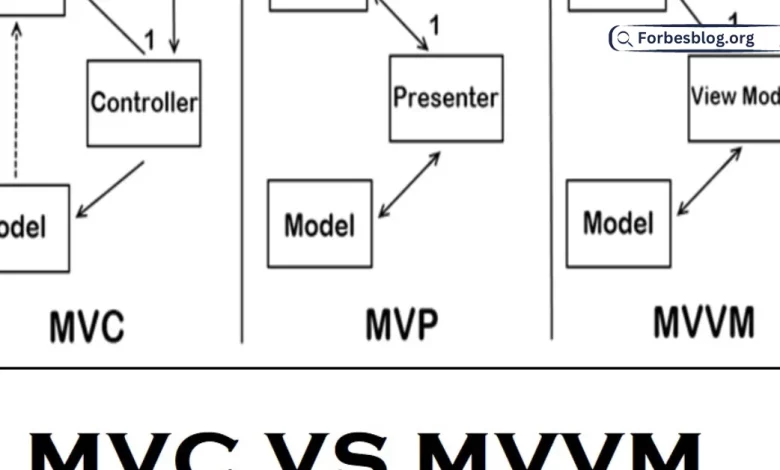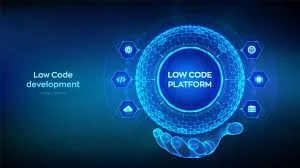MVC VS. MVVM: What Is The Right Difference Between Them?

In today’s digital world, we have many options when it comes to architecture design patterns such as MVVM (Model-View-ViewModel), MVP (Model-View-Presenter), and MVC (Model-View-Controller). MVC and MVVM are gaining more popularity than MVP. Along with their popularity, they came into the market with debates about “MVC Vs. MVVM: which one is right for your mobile app development project. This post will be helpful for you!
Let’s first start with MVC (Model-View-Controller).
Table of Contents
What is MVC?
The MVC framework is a structural design pattern that divides an app into three main logical elements Model, View, and Controller. That’s why it stands for Model View Controller. In this architecture, an element is developed to handle specific development features of a mobile app. It divides the business logic and presentation layer from each other. It is commonly used for desktop graphical user interfaces (GUIs).
Many mobile app development companies such as Appventurez use MVC architecture for developing innovative and attractive apps for both Android and iOS platforms.
What are the features of MVC?
Let’s understand the features of the Model View Controller:
- Effortless testability
- Highly extensible and pluggable framework
- It also lets you leverage existing features provided by ASP.NET, Django & JSP
- It offers complete control over your HTML and URLs
- It supports Test Driven Development (TDD)
- It lets routines for SEO-friendly URLs.
- It offers maps for comprehensible and searchable URLs.
What are the pros of MVC?
- Easy support for new clients
- Development of several elements can be performed parallelly
- It avoids complexity by separating an app into separate MVC units
- It uses a front controller pattern that processes web apps using a single controller
- It offers the best support for test-driven development
- It works best for web apps that are supported by a dedicated team of designers and developers
- It offers a clean separation of concerns (SoC)
What are the cons of MVC?
- Business logic is mixed with Ul
- Hard to reuse and implement tests
- No formal validation support
- Increased complexity and Inefficiency of data
- Using MVC with the modern UI is challenging
- No need for several developers to conduct parallel developing
- Knowledge of multiple technologies is required.
Now, it’s time to learn about MVVM (Model-View-ViewModel).
What is MVVM?
MVVM stands for (Model-View-ViewModel). This architecture divides the development of the GUI with the aid of mark-up language or graphical user interface. The view model is a value converter which means the responsibility of the view model for revealing the data from the model so that objects are easily managed. You can hire android app developers to use MVVM architecture for innovative applications for business.
What are the features of MVVM?
Let’s have a look at some features of Model-View-ViewModel architecture:
- It is written for the web app with data-binding capabilities
- View-Model uses an observer pattern to modify the View-Model pattern
- The MVVM pattern is used by WPF, Silverlight, and note
What are the pros of MVVM?
Here are some pros of Model-View-ViewModel architecture.
- Business logic is decoupled from Ul
- Easy to maintain and test
- Easy-to-reuse components
- Loosely coupled architecture
- You can write unit test cases for both the ViewModel and Model layer without the need to reference the View’.
What are the cons of MVVM?
Let’s have a look at some drawbacks of Model-View-ViewModel architecture:
- Can maintain several codes easily in the controller
- Some people think that simple UIs of MVVM architecture can be killed.
Let’s come to the main point, i.e, MVC vs. MVVM
Evaluating architectures: MVC Vs MVVM in Android Development
When it comes to selecting an appropriate structure design for Android:
- How is the system performance?
- What is the app’s capacity for being testable?
- How can you change your app?
Here are some features and functionalities:
#1 – Performance Evaluation
#2 – MVP was most reliable from MVC and MVVM.
#3 – Reviewing TDD Compatibility for MVVM Vs MVC vs MVP in the Android App
#4 – Evaluating the Capability of Modification
The Bottom Line!
Hopefully, you have now understood the difference between MVC and MVVM. You also need to select the right framework of your choice. Recognized frameworks such as iOS utilize the MVC pattern and Android app development whereas ASP.NET web form apps make use of MVP development.




